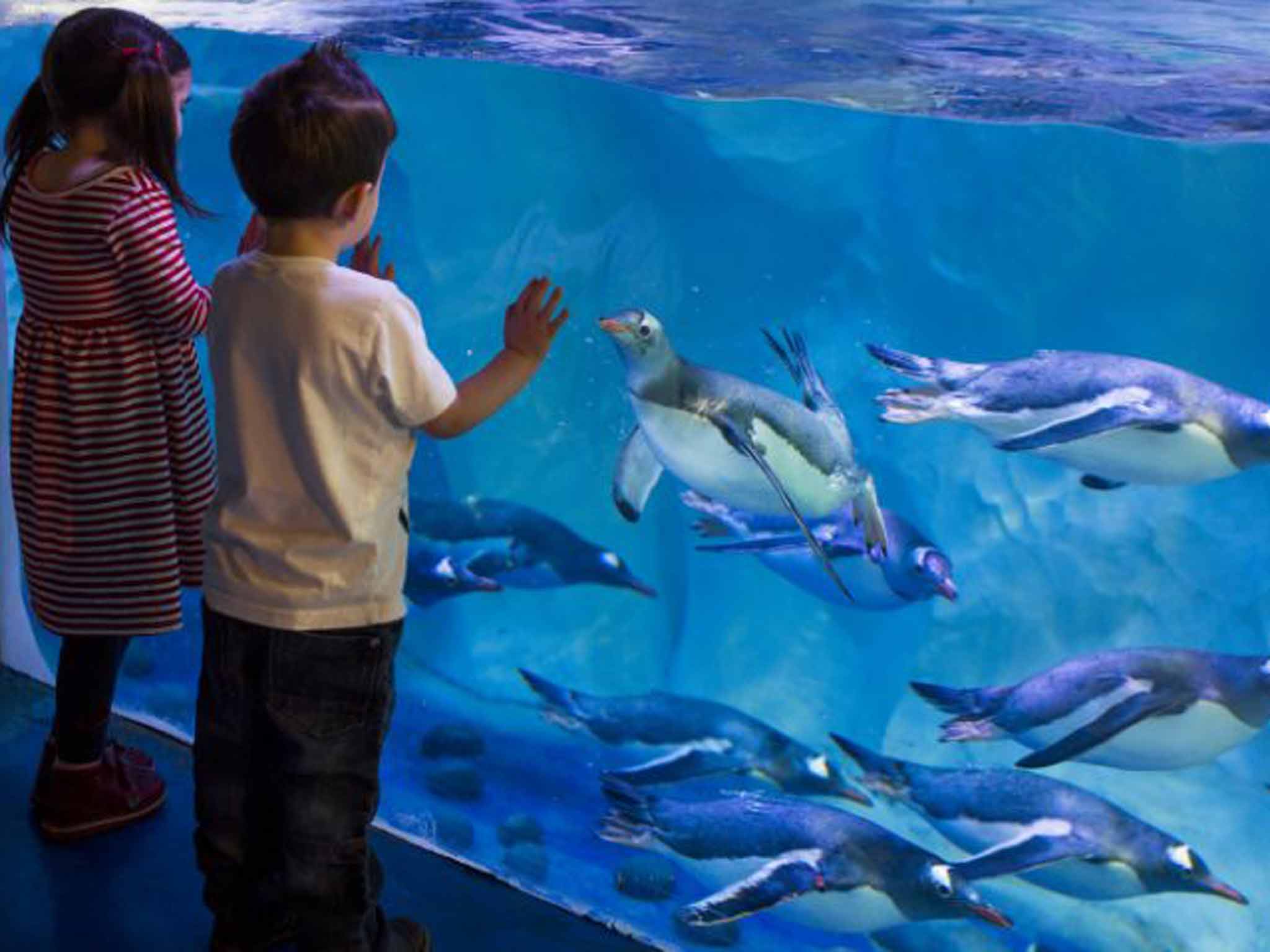Sea Life aquariums could lose Marine Conservation Society sponsorship due to high animal death rates
'You wouldn't go into hospital and expect a one-in-three chance of dying', says Dr Ben Garrod

Your support helps us to tell the story
From reproductive rights to climate change to Big Tech, The Independent is on the ground when the story is developing. Whether it's investigating the financials of Elon Musk's pro-Trump PAC or producing our latest documentary, 'The A Word', which shines a light on the American women fighting for reproductive rights, we know how important it is to parse out the facts from the messaging.
At such a critical moment in US history, we need reporters on the ground. Your donation allows us to keep sending journalists to speak to both sides of the story.
The Independent is trusted by Americans across the entire political spectrum. And unlike many other quality news outlets, we choose not to lock Americans out of our reporting and analysis with paywalls. We believe quality journalism should be available to everyone, paid for by those who can afford it.
Your support makes all the difference.The Sea Life chain of tourist attractions faces losing its sponsorship deal with the Marine Conservation Society over its “unacceptable” death rates.
More than a third of all animals at the aquarium in Great Yarmouth, Norfolk, died in a single year according to mortality figures obtained by the BBC.
The MCS, which accepted funding from Sea Life to cover the printing costs of the Pocket Good Fish Guide and has worked with it on conservation projects, said the figures were a “cause for concern”.
“You wouldn’t go into hospital and expect a one-in-three chance of dying”, said Dr Ben Garrod, an MCS Ocean ambassador.
“You wouldn’t expect that in a zoo. I don’t think it is acceptable.”
Dr Chris Tucket, MCS head of programmes, said the UK’s leading marine charity “will have further discussions with Sea Life if future collaboration is to be pursued”.
In total 4,500 creatures including sharks and jellyfish across eight Sea Life Centres in England died in 12 months between 2015 and 2016, according to the BBC's figures.
Aquariums in Scarborough and Manchester also had mortality rates higher than normal, it was reported.
The deaths included two endangered undulate rays which appear on the “red list” of the International Union for Conservation of Nature.
Sea Life, which claims on its website to be “working to preserve the oceans for future generations”, said the high number of deaths could be explained by the naturally short lives of jellyfish.
“We place the highest priority on the welfare of the animals at our centres, which are supported by experienced animal care teams, marine biologists and world-renowned veterinary consultants”, it said in a statement.
“Our centres comply with all the laws and regulations under the Zoo Licensing Act, and we have a strong track record in animal husbandry.”
The MCS said it accepted the chain had taken steps to rectify “unforeseen problems” but called for more transparency.
“There are still questions over the keeping of some species which are unproven in their suitability to being kept in captive conditions, and we would like to see a more robust set of record-keeping maintained by public aquariums to demonstrate that they give the specimens in their tanks care and attention as a matter of routine”, said Dr Tuckett.
The MCS said it accepted there was a valid role for aquariums but told The Independent it would not be fair to describe its relationship with Sea Life as an “endorsement” or support.
Join our commenting forum
Join thought-provoking conversations, follow other Independent readers and see their replies
Comments